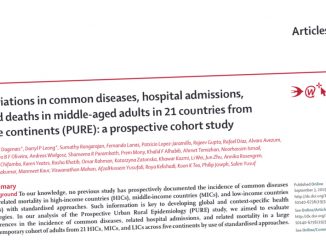Among patients hospitalised for advanced lung cancer, the prescription of preventative medicines for diabetes, hypertension, hyperlipidemia, antiplatelet agents, and vitamins/minerals is very common not only at the moment of admission, but also at discharge, according to a study that has collected data from two tertiary care centers, in the US and in the UK: MD Anderson Cancer Centre, Houston, Texas, and the Newcastle Hospitals Foundation Trust in Newcastle-upon-Tyne.
While MD Anderson solely focuses on cancer care (and has around 1,5 million patient contacts per year, with patients who have Medicare, private insurance, or other means of healthcare coverage), the Newcastle Hospitals provide all aspects of healthcare, including cancer care, and has around 1,7 million patient contacts per year, mostly managed through the National Health Service (NHS).
Among patients with advanced lung cancer, other comorbid conditions are quite common, so the group of researchers led by Adam Todd of the School of Pharmacy of the Newcastle University, decided to examine the extent to which such patients are prescribed medications with questionable benefit.
The retrospective cohort study evaluated medication use at hospital admission and hospital discharge during the hospitalization prior to death for patients who died of lung cancer assessing 125 people in the UK and 191 people in the US. The average number of preventative medications was 1,9 at admission and 1,7 at discharge for patients in Newcastle, while the MD Anderson sample showed an higher average: 2,6 at admission and 1,9 at discharge.
“The use of preventative medication was common in lung cancer patients, despite undergoing discharge. Patient-based and hospital-based factors did not influence the prescribing of preventative medication” write Todd and colleagues in the article just published on the British Journal of Clinical Pharmacology. “There may be scope to develop an intervention that embraces the principles of deprescribing at the point of hospital discharge to reduce inappropriate prescribing in lung cancer patients” they conclude.





